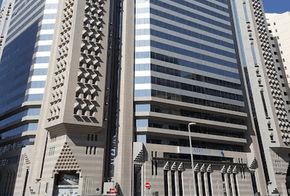Certificate in Preventive and Predictive Maintenance

- Online (Microsoft Teams)
- +971 562069465
- info@velosiaims.com
-
Velosi is conducting Certificate in Preventive and Predictive Maintenance Training
Preventive and predictive maintenance are two important strategies for maintaining equipment and machinery to ensure they continue to operate efficiently and effectively.
Preventive maintenance involves conducting routine maintenance on equipment and machinery before problems arise. This may involve tasks such as oil changes, filter replacements, cleaning, and inspections. Preventive maintenance is designed to prevent equipment breakdowns and ensure that equipment is operating at peak efficiency.
Predictive maintenance, on the other hand, involves using data and analytics to identify potential problems before they occur. This may involve analyzing equipment performance data, monitoring equipment vibration or temperature, or using other techniques to detect potential issues. Predictive maintenance can help to identify equipment issues early, allowing for repairs to be made before a breakdown occurs.
-
- Understand the principles of preventive and predictive maintenance, including the benefits and limitations of each approach.
- Learn how to develop a preventive maintenance plan, including scheduling and tracking maintenance activities, conducting equipment inspections, and determining maintenance requirements.
- Understand the basics of condition monitoring techniques and technologies, such as vibration analysis, thermography, and oil analysis.
- Learn how to collect, analyze, and interpret data to identify potential equipment problems and develop predictive maintenance strategies.
- Understand the role of computerized maintenance management systems (CMMS) in preventive and predictive maintenance, including how to use CMMS to manage maintenance schedules, work orders, and equipment history.
- Understand the importance of safety and environmental considerations in preventive and predictive maintenance activities.
- Learn how to communicate effectively with stakeholders, including management, maintenance teams, and equipment suppliers, about preventive and predictive maintenance activities.
- Develop problem-solving skills to identify and address equipment maintenance issues before they lead to equipment failures.
- Learn how to optimize maintenance processes to minimize downtime, reduce maintenance costs, and improve overall equipment reliability.
- Develop a deep understanding of the importance of preventive and predictive maintenance for achieving business goals, such as improving productivity, increasing profitability, and enhancing customer satisfaction.
-
Training will be conducted via Microsoft Team Meeting. Meeting invites will be shared one day before the first day of training.
Face-to-face training is available as per request.
-
05 Days of training from 09:00 AM to 03:00 PM GST (UAE Time)
-
- Presentation Slides
- Study References
-
Upon successful completion of training, participants will receive a “Certificate in Preventive and Predictive Maintenance" course completion certificate.
-
This course is appropriate for a wide range of professionals but not limited to:
- Maintenance Technicians and Engineers
- Operations Managers and Supervisors
- Plant and Facility Managers
- Reliability Engineers
- Maintenance Planners and Schedulers
- Equipment and Machinery Operators
- Safety and Environmental Professionals
- Quality Control and Assurance Professionals
- Procurement and Supply Chain Professionals
Course Outline
-
Introduction to Preventive and Predictive Maintenance
- Overview of preventive and predictive maintenance
- Benefits and limitations of each approach
- Key concepts and terminology
-
Developing a Preventive Maintenance Plan
- Understanding equipment maintenance requirements
- Creating a maintenance schedule and tracking maintenance activities
- Conducting equipment inspections
- Determining maintenance requirements and frequency
-
Condition Monitoring Techniques and Technologies
- Overview of condition monitoring
- Vibration analysis
- Thermography
- Oil analysis
-
Predictive Maintenance Strategies
- Collecting and analyzing data to identify potential problems
- Developing predictive maintenance strategies
- Optimizing maintenance processes
-
Computerized Maintenance Management Systems (CMMS)
- Overview of CMMS
- Managing maintenance schedules, work orders, and equipment history
- Tracking maintenance costs and performance metrics
-
Safety and Environmental Considerations
- Safety considerations in maintenance activities
- Environmental regulations and compliance
- Risk management and mitigation
-
Communication and Collaboration
- Effective communication with stakeholders, including management, maintenance teams, and equipment suppliers
- Collaborating across teams and departments to achieve maintenance goals
-
Case Studies and Best Practices
- Case studies of successful preventive and predictive maintenance programs
- Best practices for developing and implementing maintenance strategies
- Lessons learned and opportunities for improvement
-
Review and Assessment
- Review of key concepts and learning objectives
- Assessment of knowledge and skills acquired during the training program
- Action planning for implementing preventive and predictive maintenance strategies in the workplace.


